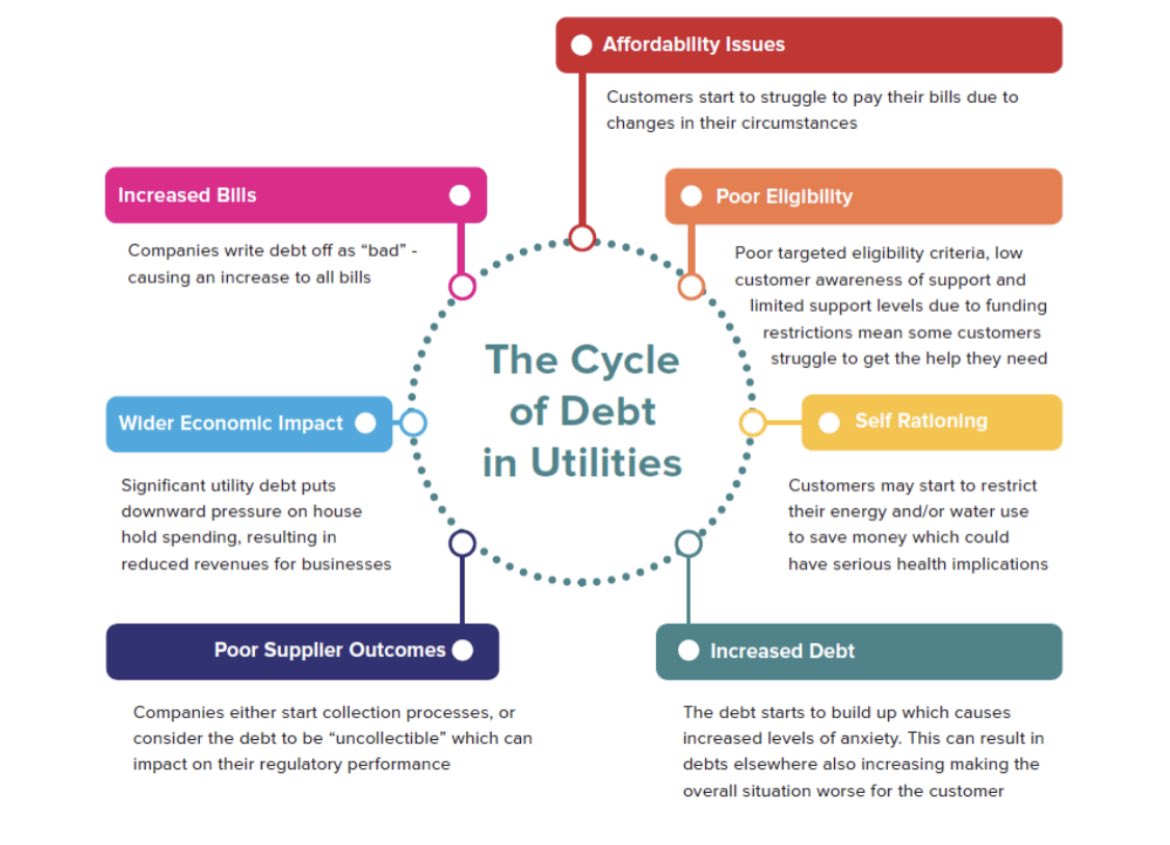Today @ofgem have announced that they intend to increase the price cap by £21 to cover the costs of increased bad debt in energy.
So why is there a perceived need to do this, and does it really need to be done?
A thread
1/7 https://twitter.com/emilygosden/status/1329714935174197252
So why is there a perceived need to do this, and does it really need to be done?
A thread

1/7 https://twitter.com/emilygosden/status/1329714935174197252
Well firstly, let’s consider whether suppliers are facing higher costs.
It’s difficult to argue that they aren’t. As @CarlPackman shows here, people are facing huge financial problems.
This translates into unpaid bills, which does cost suppliers money.
2/7 https://twitter.com/carlpackman/status/1329732314960703488
It’s difficult to argue that they aren’t. As @CarlPackman shows here, people are facing huge financial problems.
This translates into unpaid bills, which does cost suppliers money.
2/7 https://twitter.com/carlpackman/status/1329732314960703488
So suppliers have faced extra costs, but do @ofgem need to change the cap?
The cap is designed to change as costs change. So arguably yes.
But the real question is whether something else should be done to stop the root cause and help the people in debt.
3/7
The cap is designed to change as costs change. So arguably yes.
But the real question is whether something else should be done to stop the root cause and help the people in debt.
3/7
Of course it should. 2 reasons
1) The root cause of the issue is that people haven’t had enough money to pay their bills.
Increasing the amount of money that suppliers can access from customers to service this debt exacerbates this
See @JessCook_NEA’s the cycle of debt
4/7
1) The root cause of the issue is that people haven’t had enough money to pay their bills.
Increasing the amount of money that suppliers can access from customers to service this debt exacerbates this
See @JessCook_NEA’s the cycle of debt
4/7
2) £21 to some people is a lot of money. Maybe 10 days of heating.
To others it’s not so much.
But if debt servicing costs increase in other utilities and council tax then it will all add up. More people will struggle, adding to the debt cycle further.
5/7
To others it’s not so much.
But if debt servicing costs increase in other utilities and council tax then it will all add up. More people will struggle, adding to the debt cycle further.
5/7
So what should be done instead?
Three priority things:
1) Change the warm home discount so that all eligible households can receive it automatically
2) #KeepTheLifeline and maintain the £20 UC uplift
3) Offer households more breathing space, earlier, to clear their debt
6/7
Three priority things:
1) Change the warm home discount so that all eligible households can receive it automatically
2) #KeepTheLifeline and maintain the £20 UC uplift
3) Offer households more breathing space, earlier, to clear their debt
6/7
For our views on debt see:
https://www.nea.org.uk/research/surviving-the-wilderness/?parent=research-posts
7/7
https://www.nea.org.uk/research/surviving-the-wilderness/?parent=research-posts
7/7

 Read on Twitter
Read on Twitter


